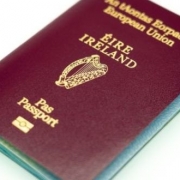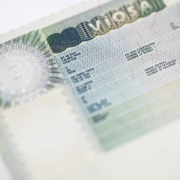MINISTER HELEN MCENTEE ANSWERS PARLIAMENTARY QUESTION REGARDING PROCESSING TIMES FOR NATURALISATION APPLICATIONS IN THE STATE
Minister Helen McEntee recently answered a parliamentary question in relation to the processing times for naturalization applications in the State.
Deputy Bernard J Durkan asked the Minister to confirm the number of naturalization applications that had been received by the Department of Justice during the period of 1st January 2022 to 31st March 2022, how many of those had been granted, and the expected processing time for those that had yet to be determined.
The Minister acknowledged the importance that naturalization applications hold for applicants, and highlighted that the Department of Justice continued to accept applications throughout the Covid-19 pandemic.
Minister McEntee confirmed that 3,706 naturalization applications were received by the Department of Justice between 1st January 2022 and the 31st March 2022, three of which have been approved. She continued to clarify that a further 24 applications from this cohort are “in the final stage of processing”.
Interestingly, Minister McEntee confirmed that the average processing time for naturalization applications is currently 19 months and highlighted that this had been reduced from a previously stated processing time of 23 months. While the reduction of the processing time is a welcome update, it remains far above the pre-pandemic average processing time of 12 months.
Minister McEntee portrayed an awareness of the need for a further reduction in the length of time people are currently being made to wait to have their citizenship applications determined. She highlighted that the Department of Justice is introducing new measures to try and speed up the process, including the assignment of new staff and a number of digitization measures. It remains to be seen if these measures will indeed aide the continued reduction of processing times of naturalization applications in the State.
If you or your family require advice on your eligibility for naturalisation or in respect of your ongoing naturalisation application, please do not hesitate to contact our office.
The full parliamentary question and answer can be read here.






 On the 14th December 2021, Minister McEntee confirmed that the Afghan Admission Programme will open for applications this Thursday, 16 December 2021.
On the 14th December 2021, Minister McEntee confirmed that the Afghan Admission Programme will open for applications this Thursday, 16 December 2021.